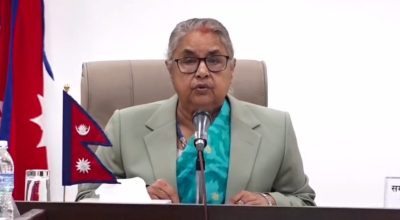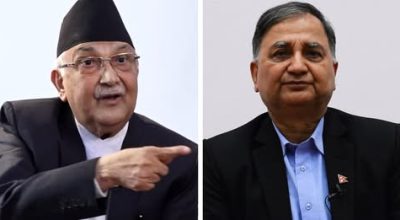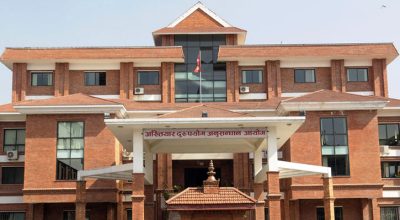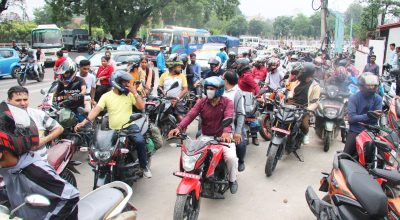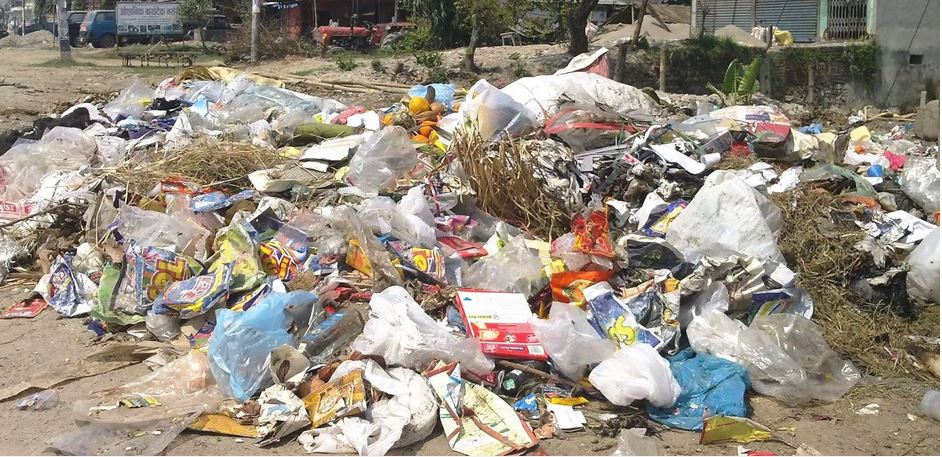
Sanchita Ghimire/RSS
LALITPUR: Candidates of the upcoming local level election in Lalitpur Metropolitan City have forwarded resolution of drinking water problem and management of garbage as the main agenda.
Candidates of ruling coalition parties, the CPN (UML) and Rastriya Prajatantra Party, as well as other parties have expressed commitment to involve for the resolution of these problems if they win the election. Lalitpur Metropolitan City folks have been facing drinking water problem since long.
Resolution of drinking water problem and garbage management has become the election agenda this year too as in previous elections.
The Lalitpur metropolitan city is dependent on landfill site constructed by the federal government after the metropolitan city failed to make arrangement of separate landfill site for garbage management. Candidates of all three levels always make commitment to resolve the problems of drinking water and to make clean city during the election, it has not been materialized yet.
Chiribabu Maharjan, mayoral candidate of Lalitpur Metropolitan City from the Nepali Congress, was also mayor of this metropolitan city before.
Maharjan said that he carried out activities to resolve the problems of drinking water and garbage management during his term as mayor. He opined that garbage management and drinking water crisis are the common problem of all local levels in the Kathmandu Valley.
Now that the supply of Melamchi water has been restored, we will do our best to detect the locations where the drinking water is not available. The shortage of water will be addressed even by the fixation of deep tube well in the first phase.
As Maharjan said, the waste disposal is not a big issue for Lalitpur as in the Kathmandu Metropolis.
He claimed that during his term as the mayor of the town, he and his team was minutely focused on the waste management. “We are able to manage waste internally for around 15 days if we could not transport the collection to the Nuwakot-based landfill site.”
Maharjan was of the view of handing the landfill site construction project at Bancharedana to the local government for its smooth implementation and management.
He said though the erstwhile local government tried to undertake waste management works at the southern part of the town, it could not be possible due to geographical issue. “The site lies under the aviation route.”
The mayor candidate from the CPN (UML), Hari Krishna Byanjankar said supplies of drinking water to inner settlements of the town would be his agenda of priority if he got elected to the post. Any local government is accountable to ensure the people’s fundamental right to drinking water, he asserted.
“Since water plays a direct role from the kitchen to the daily life of the people, we will now direct our efforts at addressing the problem of acute shortage of water in our metropolis,” he added.
The mayoral candidate Byanjankar shared that he has prepared the plan for ridding the metropolis of waste, saying the waste would be transformed into manure by using technology.
“There won’t be any garbage in the streets of the metropolis if I get elected to the post of mayor,” Byanjankar reiterated.
Similarly, Ashta Bahadur Maharjan, the mayoral candidate from the Rastriya Prajatantra Party (RPP), said improving the water supply and sanitation in the metropolis was his main agenda.
He said he would first identify the level of the problem in each and every ward of the metropolis and forward the programme on the basis of priority for addressing the problem where it is more pronounced. “The citizens will be healthy only if each and every street of the metropolis is clean,” he stressed.
Manjali Shakya (Astha) who is the deputy mayor candidate from the CPN (UML) said implementation of the fundamental rights of the citizen was her first priority. She added that attention would be given to reaching education, health and water to the people.
There is no water in taps at homes in several inner streets and lanes of the metropolis. “I have the plan to providing water to each and every house and citizen,” she emphasized. Moreover, she said project would be brought in consultation with experts for producing fertilizer from the municipal waste. The city would be made plastic- and garbage-free within a year’s time, she said.
Shakya also talked of her plan of operating electric vehicles in the inner city areas. Elaborating on her plan, she said the programme would be forwarded in collaboration with various countries.
“We also have a plan to plant 5 million plants for the environment conservation,” she added.
CPN (Maoist Centre)’s candidate for deputy mayor Baburaj Bajracharya said that he planned to make the city clean by managing drinking water and sewage system. “Lalitpur is a bigger city in terms of geographically and population-wise.
Drinking water related issues were the biggest problems facing the metropolis folks here,” he admitted, pledging to resolve the problem related to it.
According to him, the problem related to drinking water prevailed in the Metropolis since Melamchi Drinking Water Project’s water had not reached everywhere in the Metropolis.
Bajracharya shared that inner city still had problem of sewage which he assured to address if he is elected to the post.
Citing the sewage leaking out along the Natole to Gwarko in Lalitpur and lack of clean slaughterhouses in the city, he reaffirmed his commitment to address those issues.
Furthermore, his prioritized agendas on economic growth, development of physical infrastructure, gender inclusiveness among others besides advancing the cause of heritage conservation in the city dubbed as hub for art and culture.
A total of 14 candidates have filed their nominations for mayoral post in the Metropolis while 13 have registered their nomination for deputy mayor post for the May 13’s local level election.
Likewise, 169 people are contesting in ward chairpersons, 266 in ward members, 126 in women ward member and 57 in Dalit women ward member, according to the Office of the Chief Election Officer.





